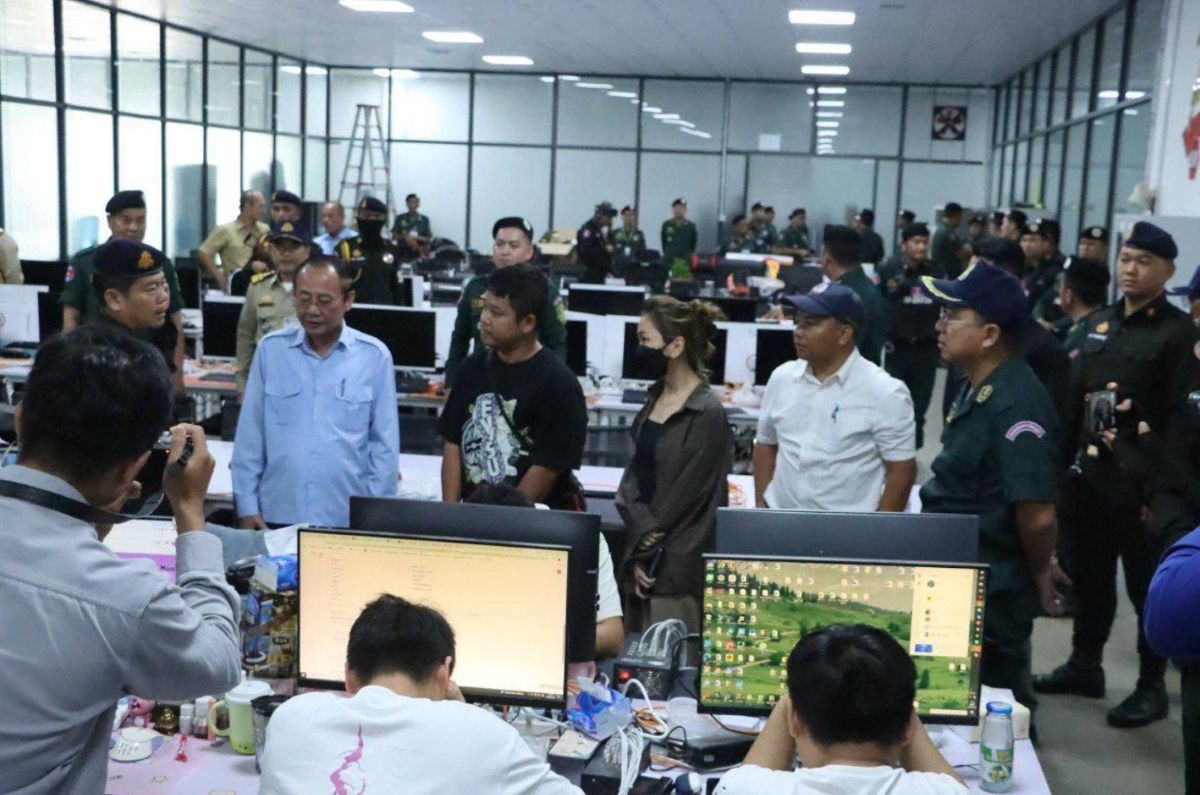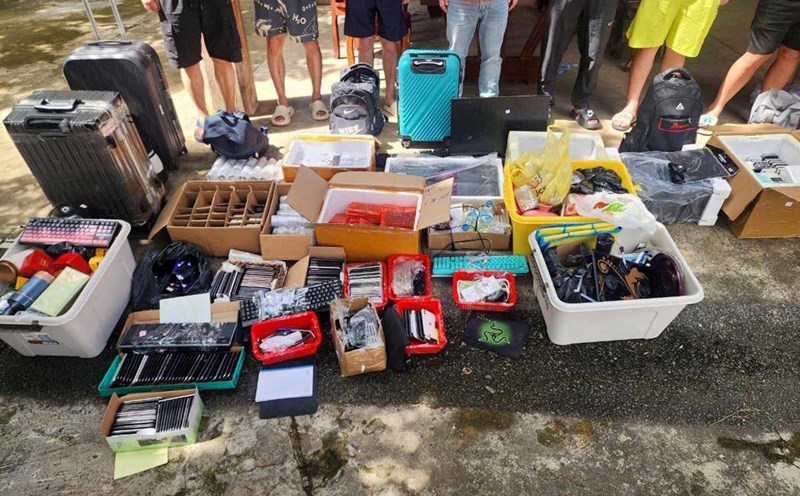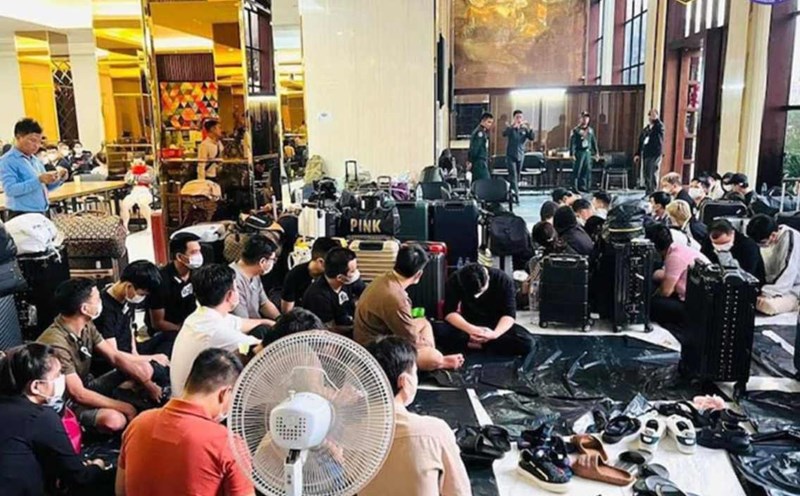In the context of the Philippines' unemployment and lower wages than living expenses, thousands of workers have ventured abroad to find light, high-paying jobs. Many brokers have taken advantage of this despair, turning them into tools for cross-border criminal rings.
Complaints from returnees
In early August, nine Philippine workers - repatriated after months of imprisonment - publicly exposed what they had to endure at scams in northern Cambodia.
At a press conference of Migrante International, they said they were tricked into being "customer service staff" with a promised salary of 700 USD/month. But when he arrived, everything turned into a nightmare.
"We were forced to impersonate on Facebook, flirt and trick others into investing in cryptocurrency. If they do not meet the target, they beat, force them to inhale 100 times or deduct all their salaries. The phone is only used for 1 hour a day. Whoever opposes it will be sold to another company as a product" - a victim said.
From fraud to detention
Some workers were discovered when they secretly contacted the Philippine Embassy, and were not rescued but were transferred directly to Cambodian prisoners.
The victims' families are also in pain. Ferdinand, a workers father, said his son was still in prison and had only been informed by the Embassy that he would pay for food, and that he not be allowed to visit once.

Transnational network
International reports have repeatedly warned Cambodia to be a hot spot for online scams manipulated by Chinese-origin gangs with protectionist powers. In the first 5 months of 2025 alone, an Indian newspaper reported that the damage caused by these networks in Southeast Asia reached 816 million USD.
The recruitment method is described as sophisticated: victims are told to only go through the entrance when there are "recent employees" on duty, or are taken around Bangkok and then transported directly by car to Cambodia. Air tickets and passports were confiscated immediately upon landing.
According to the President of Migrante International, the cases in Cambodia are just a part of the iceberg sinking. These horrifying experiences show the vulnerability of shift workers. This is not just an online scam - but a modern, systematically operated enslavement, under the cover of international recruitment".
Cambodia's move
According to the Khmer Times, since June, the Royal Cambodian Government has stepped up crackdown on cybercrime, turning strong words into drastic actions.
With a national campaign to crack online fraud, the government has arrested more than 3,170 subjects of 19 natures in 72 campaigns, starting from June 27 to August 18. Of the arrests, more than 2,450 have been deported from Cambodia and 66 have been taken to court for prosecution.
According to the Khmer Times, in fact, Cambodia is also a victim of these cross-border crimes, hacked by sophisticated international networks.











